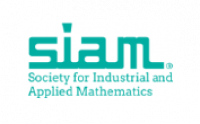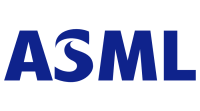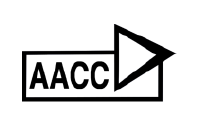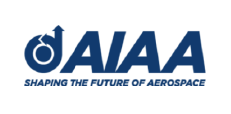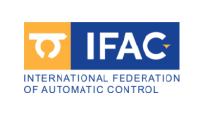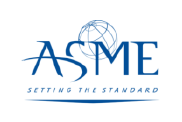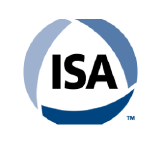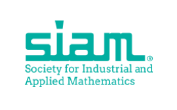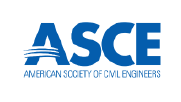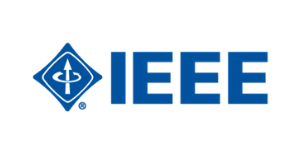ACC 2023 will offer workshops addressing current and future topics in automatic control from experts in academia and industry. The workshops at ACC 2023 will take place in person prior to the conference on Tuesday, May 30, 2023
Conference registrants can sign up for the workshops directly through the registration site. For additional information about Workshops, please contact Workshops Chair, Vaibhav Srivastava (vaibhav@egr.msu.edu). Please note that workshops are subject to cancellation at the discretion of the organizers due to lack of registrants. Organizers and the chair will do their best to inform workshop registrants of cancellations, but please check the Workshops page often for current status.
Below is a tentative schedule of the available workshops.
Full Day Workshops (Tuesday, May 30, 2023)
Organizer(s): R. Russell Rhinehart (Oklahoma State University)
Location: Aqua 311A
Time: 8:30 am – 5:30 pm
Abstract:
This full-day workshop will be a practical guide for those using multivariable, constraint handling, nonlinear optimization. Although fundamental algorithms and associated code will be revealed so that procedures could be independently coded, the key takeaway will be participants’ ability to:
- Define the objective function (cost function).
- Incorporate constraints (either hard or as appropriately weighted penalties).
- Choose an appropriate optimizer for application attributes.
- Choose appropriate convergence criteria and threshold values.
- Choose initialization and number of trials to be confident in finding the global optimum.
The workshop will cover common gradient-based optimization techniques (Steepest Descent, Sequential Line Search, Newton, Levenberg-Marquardt, GRG, etc.) and direct-search techniques (Heuristic, Hook-Jeeves, Particle Swarm, Leapfrogging, Genetic Algorithms, etc.), and both single and multi-objective applications (Pareto Optimal). These are chosen for their utility and/or because they represent the fundamentals of most approaches.
Course examples will represent diverse applications which should be understood by any engineering discipline. Participants will receive course notes and software to provide exercises and access to code. Exercises and code can be implemented in any environment, but Excel/VBA will used as in-workshop examples and exercises. Participants are invited to bring a computer with Excel version 2010 or higher for in-class exploration, and participants have permission to directly apply the provided software to their specific problems. The material is based on the textbook Engineering Optimization: Applications, Methods, and Analysis, 2018, John Wiley & Sons, ISBN-13: 978-1118936337, ISBN-10:1118936337, 731 pages with supplemental material and software on the companion web site www.r3eda.com.
Most exercises are for 2-dimensional applications for visual understanding of the surfaces and methods, but the methods and techniques are scalable to high dimension. Several N-D examples will be provided.
Feel free to contact the presenter at russ@r3eda.com.
Detailed description of the workshop can be found here.
Organizer(s): Francesco Bullo (University of California Santa Barbara)
Location: Aqua 310B
Time: 8:30 am – 5:30 pm
Abstract: Much recent research has focused on the application of the Banach contraction principle to control and dynamical systems. Similarly, key problems in machine learning and dynamical neuroscience can be addressed with these tools. Contracting dynamical systems automatically enjoy numerous safety and stability guarantees. Moreover, an important complement to these theoretical tools is given by the increasingly-applied theory of monotone operators. The workshop will present an extensive list of presentations by leading scientists worldwide on (1) the foundations of contraction theory, (2) theoretical developments for complex networks, including progress on synchronization and scalability, (3) computational advances in the design of contraction metrics and contracting dynamical systems solving optimization problems, and (4) applications to machine learning, planning and robust control. Of special interest to the ACC audience will be results on robust stability analysis and control design for deterministic and stochastic systems as well as formal robustness and stability guarantees for various learning-based control problems.
This workshop will bring together experts of diverse backgrounds to discuss recent theoretical and computational advances, identify emerging challenges, and discuss rapidly-developing application opportunities. The workshop should be of interest to both junior and senior researchers interested in theoretical and computational advances in systems, control, and learning. A recent successful tutorial session at the 2021 IEEE CDC confirms the interest of the control community in these topics. If approved by the ACC leadership, a tutorial pre-workshop event will be offered to attendees, based upon a recent freely-available textbook: http://motion.me.ucsb.edu/book-ctds.
A detailed program of the workshop can be found on the website: http://motion.me.ucsb.edu/contraction-workshop-2023/
Organizer(s): Eyad H Abed (University of Maryland, College Park), Rahul Jain (University of Southern California), Dileep Kalathil (Texas A&M University), Kameshwar Poolla (University of California, Berkeley), Pramod Khargonekar (University of California, Irvine)
Location: Sapphire E
Time: 8:30 am – 5:30 pm
Abstract: Professor Pravin Varaiya of the University of California, Berkeley passed away in Berkeley on June 10, 2022 at the age of 82. At the time of his passing, he was a Professor Emeritus in the Department of Electrical Engineering and Computer Sciences, where he had served on the faculty since completing his Ph.D. there in 1966. From 1975 to 1992 he also served as Professor in the Department of Economics at Berkeley. Pravin was widely acknowledged to be a uniquely gifted researcher, and he made foundational contributions in a breath-taking array of disciplines rooted in system and control theory – optimization, large-scale systems, economics, nonlinear systems, differential games, circuit theory, information theory, hybrid systems, communications, game theory, stochastic processes, transportation and power systems. He excelled at abstracting problems to illuminate their essence, and offering solutions with his trademark elegance and rigor.
The goal of this workshop is to honor Pravin’s vast contribution to the area of systems and control in a way that he would have most appreciated – by exploring the exciting research agenda on the foundations of systems and control for the 21st century.
This workshop will bring together leading researchers in the area of systems and control who will offer historical perspectives from their domains of expertise and outline their vision for the future of systems and control. They will also discuss the key goals, technical challenges and implementation difficulties that require a joint effort from the community. We believe that presenting these challenging and important problems to the control community in this workshop will be instrumental in attracting new researchers and graduate students to our community. We will also invite the past students, postdocs, colleagues and collaborators of Pravin Varaiya, many of whom are now leading researchers in top academic institutions and industries to share their personal anecdotes.
Workshop webpage: https://sites.google.com/tamu.edu/varaiya-workshop-2023/home
Organizer(s): Jorge I. Poveda (University of California, San Diego) and Miroslav Krstic (University of California, San Diego)
Location: Aqua 311B
Time: 8:30 am – 5:30 pm
Abstract: The main goal of this workshop is to present and discuss recent advances in the area of model-free steady-state optimization and learning, also known as equilibrium-seeking control (EqSC). These types of problems have been studied for more than a century using control theoretic techniques in conjunction with optimization and learning algorithms, and they have seen renewed interest during the last years due to several successful applications in different engineering domains. Examples include chip manufacturing systems, wind and photovoltaic energy systems, mobile robots, bioengineering systems, RF power amplifiers, HVAC systems, etc. These engineering applications have been further enriched by recent theoretical developments that have opened the door to the design and analysis of new types of EqSCs, such as those modeled by partial differential equations (PDEs), systems with delays, hybrid dynamical systems, stochastic systems, non-smooth systems, etc. Since most of these developments have taken place during the last decade, this workshop presents as an excellent opportunity to disseminate results, cross-fertilize ideas, and develop new potential local and international collaborations. The workshop includes speakers from academia, industry, and national laboratories, and it seeks to strike a healthy balance between theoretical developments and practical applications.
A detailed program of the workshop can be found on the website: https://sites.google.com/view/acc-2023-workshop-e-seeking
Organizer(s): Jan Drgona (PNNL), Soumya Vasisht (PNNL), Wenceslao Shaw Cortez (PNNL), Aaron Tuor (PNNL), Biswadip Dey (Siemens), and Draguna Vrabie (PNNL)
Location: Aqua 313
Time: 8:30 am – 5:30 pm
Abstract: In recent years there has been an explosion of research on the intersection of machine learning and classical engineering domains. Machine learning is increasingly being used in the development of novel data-driven approaches for modeling and control of dynamical systems, traditionally dominated by physics-based models and scientific computing solvers. On the other hand, engineering and scientific computing principles are changing the machine learning landscape from purely black-box into domain-aware methods by incorporating more structure and prior knowledge into their model architectures and loss functions.
Differentiable Programming has emerged as a leading paradigm for systematically integrating converging domains of machine learning and scientific computing based on a shared infrastructure that is built on automatic differentiation of complex computer programs.
Differentiable Programming has ushered in a new epoch in scientific machine learning with structured domain-aware model architectures, signaling a paradigm shift away from over-parametrized black-box deep neural models.
This workshop brings together pioneers and leaders in this emerging area of differentiable programming to gather their perspectives on nonlinear dynamical systems modeling, constrained optimization, and control. Our intention is to build synergy between research teams working on the theory, tools, and algorithms in this area for different applications, including buildings, energy systems, climate models, healthcare, robotics, and vision, to name a few. We hope the talks pique further interest in this topic leading to exciting new research directions and wider adoption of domain-aware differentiable architectures.
A detailed program of the workshop can be found on the website: https://d-biswa.github.io/Differentiable-SysCon/
Organizer(s): Gianluca Bianchin (University of Louvain), Emiliano Dall’Anese (Univ. of Colorado Boulder), Jorge Cort ́es (University of California San Diego), and Miguel Vaquero (IE University)
Location: Aqua 314
Time: 8:30 am – 5:30 pm
Abstract: Over the past decade, considerable research effort has been devoted to the development and synthesis of control algorithms that are inspired by optimization algorithms. These activities are motivated by the fundamental observation that in many control applications – with prime examples being control of transportation systems, power networks, robotic systems, and epidemic models – it is necessary to control physical systems to optimal setpoints and simultaneously update these setpoints during runtime by taking into account for several optimality requirements, such as system efficiency, user satisfaction, and minimality of the control effort. From this background, it is increasingly evident that physical systems and dynamical optimization algorithms are becoming progressively integrated and that optimization algorithms play a key role in future control paradigms, and thus their behavior needs to be taken into account fundamentally when designing modern autonomous and intelligent systems. These practical motivations and research questions have led to a flourishing research field that has received considerable attention during the past decade, with contributions from several research communities (including Controls, Optimization, and Machine Learning) and many research groups worldwide.
This workshop aims to report recent research achievements in the use of online optimization algorithms for feedback control and to identify emerging research challenges in the area. To this end, the workshop will be constructed around two central themes: (i) the synthesis of feedback optimization methods using data-driven (or model-free) techniques – which broadly includes the use of techniques from data-driven control as well as the use of derivative-free methods from optimization – and (ii) the adoption of feedback optimization methods for the control of systems with a network structure. “
Workshop webpage: https://gianlucabi.github.io/ACC23/
Organizer(s): Fumin Zhang (Georgia Institute of Technology), Yue Wang (Clemson University), Wenlong Zhang (Arizona State University), Shaoshuai Mou (Purdue University), Neera Jain (Purdue University), Changliu Liu (Carnegie Mellon University), and Ningshi Yao (George Mason University)
Location: Sapphire 410A
Time: 8:30 am – 5:30 pm
Abstract:
The goal for this workshop is to present recent advancement of human-autonomy interaction and integration. It is motivated by a healthy growth of the body of research in many areas related to systems and control, including but not limited to, design and verification of safe co-robots in an industrial environment, autonomous or assisted driving on highways, human on-the-loop control and monitoring of swarms of unmanned vehicles, and assist-as-needed control of wearable robotics. Canonical control systems design and analysis tools have found their way into solving a small subset of problems, but are still largely on a case-by-case basis. Research in this domain require a good balance between model-based methods and learning-based methods, and between fully autonomy and human guidance. Major challenges naturally arise in addressing the lack of first principles and proven mathematical models for human intentions and human behaviors. We have envisioned that the control community will play a more crucial role in human autonomy interaction and integration by taking on challenges including: joint decision making, verifiable safety, learning based adaptation, workload and comfort management, trust calibration and control. We aim to report recent research achievements and identify these relevant challenges, as well as a review for testbed and facilities for this domain of research. This full-day workshop will include plenary talks, invited talks, interactive poster sessions, and a panel discussion.
For more information about the talks and the speakers, please see the workshop website: https://zoe104yao.github.io/ACC2023Workshop/
Organizer(s): Glen Chou (MIT), Sushant Veer (NVIDIA), Heng Yang (NVIDIA), Ryan Cosner (Caltech), Marco Pavone (Stanford)
Location: Sapphire I
Time: 8:30 am – 5:30 pm
Abstract: Safety-critical robotics applications (e.g., self-driving cars, medical robots) call for an autonomy stack that can offer rigorous performance guarantees. However, the status quo of the two fundamental building blocks of an autonomous system, namely perception and control, pose enormous challenges in achieving safety guarantees. On one hand, although recent advances in computer vision and deep learning have created large-scale perception modules that can build high-fidelity world models from complicated sensor data, such models are typically high-dimensional, incomplete, and difficult to verify. On the other hand, modern control theory provides a broad spectrum of machinery for synthesizing controllers with robustness guarantees, but often builds on the assumption that the synthesizer has access to low dimensional, complete, and correct world models, which unfortunately is unrealistic for today’s autonomous agents with imperfect perception. Moreover, due to the interconnected nature of the autonomy stack, additional errors can arise through the integration of perception and control, which may render individual verification of these modules insufficient.
We believe it is a correct and critical time for both communities to unify perspectives and identify challenges and opportunities towards safe perception-based control.
In this workshop, we focus on three thrusts that we believe lay a roadmap for safe perception-based control:
- Safe Perception: Certification, verification, and uncertainty quantification of the world models outputted by a perception system with black-box neural modules
- Safe Control: Enhancement of modern planning and control theory that can construct safety certificates in the presence of uncertain, high-dimensional, and incomplete observations
- Safe Integration: Coupling, feedback, and co-design of perception and control that mitigates the shortcomings of each module from the strengths of the other
We believe the three thrusts above are related to multiple research avenues such as neural network verification, uncertainty quantification, statistical learning and generalization, global optimization, neural Lyapunov and barrier certificates, and reinforcement learning, to name a few. Therefore, we invite researchers from a broad set of communities to share their expertise and insights, and in doing so, we aim to highlight commonalities, identify untapped synergies, and discuss ways to augment the current state-of-the-art, both in theory and in practice.
Workshop Website: https://sites.google.com/umich.edu/safeperceptionbasedcontrol/home
Organizer(s): Debdipta Goswami (The Ohio State University)
Location: Sapphire 410B
Time: 8:30 am – 5:30 pm
Abstract: In the past century, the estimation and control of various systems have been carried out by modeling and analysis of the physical system, and an efficient controller could be designed based on the model. But in recent days, we have moved forward with the great hope of controlling more complicated systems where a reliable model is often hard to find. With the abundant data available from the cheap sensors in present days motivate people to identify a reduced order model from the data. On the other hand, in several safety-critical applications, one has to learn the behavior of an unknown dynamical system from noisy observations of a very limited number of trajectories. For example, to autonomously land an airplane that has just gone through engine failure, limited time is available to learn the modified dynamics of the plane before appropriate control action can be taken. Despite several advances made in the domain of data-driven modeling, the lack of performance guarantee and scalability prevents their use in a wide range of safety-critical applications. Environmental uncertainties in real-life scenarios also necessitate quick model adaptation and require careful exploration of the surroundings in deployable systems.
This workshop aims to offer a survey of emerging techniques and research problems in employing data-driven modeling for dynamical systems and control. Emphasis will be placed on both recent theoretical developments in structured learning of dynamical systems and emerging applications ranging from space-domain awareness, plasma-physics, and computer science. We will introduce state-of-the-art methods for uncovering dynamical systems properties from simulated and measured data, including nonlinear model reduction, simultaneous learning and control of dynamical systems, learning from partial measurements, as well as computationally efficient simulation of kinetic plasma systems. Moreover, several open problems and opportunities for further fruitful collaborative efforts in this emerging field at the intersection of systems and control theory, data science, physics, and machine learning will be articulated and discussed.
A detailed program of the workshop can be found on the website: https://goswami78.github.io/ACC_2023_Workshop/
Organizer(s): Bin Hu (UIUC), Kaiqing Zhang (UMD), Na Li (Harvard), Mehran Mesbahi (UW Seattle), Maryam Fazel (UW Seattle), and Tamer Basar (UIUC)
Location: Sapphire A
Time: 8:30 am – 5:30 pm
Abstract: Gradient-based methods have been widely used for control design and optimization applications. Recently, there has been a renewed interest in studying these methods in the context of reinforcement learning (RL) and policy optimization (PO) for control. Importantly, RL has recently shown an impressive performance on a wide range of applications, from mastering the game of Go to complex robotic manipulations. Key to the RL success is the algorithmic framework of PO, where the policy, mapping observations to actions, is parameterized and directly optimized upon to improve system-level performance. On one hand, PO provides a streamlined practical approach to learning-based control design. For example, PO gives a generalpurpose paradigm for addressing complex nonlinear dynamics and perception-based control: for tasks involving complex nonlinear dynamics and high-dimensional image observations, one can parameterize the mapping from pixels to actions as a neural network, and learn the corresponding policy using the PO formalism. On the other hand, despite its generality and flexibility, PO formulation of control synthesis is typically nonconvex and as such, challenging for obtaining strong theoretical guarantees. This workshop aims to revisit the theoretical foundation of PO for RL and control, and provide a comprehensive review of recently-developed theoretical results on the optimization landscape, global convergence, and sample complexity of policy optimization methods for various continuous control problems such as the linear quadratic regulator (LQR), H-infinity control, risk-sensitive control, linear quadratic Gaussian (LQG) control, and output feedback synthesis. A strong emphasis is on how direct policy optimization handles stability and robustness concerns in learning-based control, two main desiderata in control engineering. A main goal of this workshop is to reflect the increasingly interdisciplinary research trend interfacing control and learning, and inspire more collaborations between the control, optimization, and machine learning communities. Challenges and opportunities at the intersection of policy optimization, reinforcement learning, and feedback control will also be discussed.
Organizer(s): James B. Rawlings (UC Santa Barbara), and Thomas A. Badgwell (Collaborative Systems Integration)
Location: Sapphire M
Time: 8:30 am – 5:30 pm
Abstract: Model predictive control (MPC) has become the most popular advanced control method in use today. Its main attractive features are (i) optimization of a model forecast over the available actuators (ii) estimation of the state of the system and disturbances from the process measurements, (iii) accounting for the process and actuator constraints, and (iv) accounting for full multivariable interactions. After its introduction in the process industries in the 1970s, MPC
has today become a pervasive control technology in many industries, and is now being increasingly deployed for optimization of high-level functions such as minimizing energy consumption, maximizing product quality and maximizing process profitability.
This one-day workshop is intended to introduce graduate students and practitioners to the theory and design of MPC systems. Simulation examples are implemented in a high-quality open software environment (python, octave, CasADi). Students are expected to bring their own laptop computers and to download and install the workshop courseware prior to the class. The following topics will be covered:
1. Model predictive control: regulation problem, LQR, constrained regulation, state estimation, Kalman filter, tuning
2. System identification: maximum likelihood, estimating state space models and noise covariances for the state estimator
3. Putting regulation, estimation,and ID together: industrial practice, disturbance models, integral control, and zero offset.
4. Linear MPC application exercise
Lunch
5. Nonlinear MPC: summary of new features, closed-loop properties and robustness
6. Economic MPC: problem formulation, reference trajectories, and closed-loop properties
7. Nonlinear MPC application examples
Half-Day Workshops
Organizer(s): Sivaranjani Seetharaman (Purdue University) and Vijay Gupta (Purdue University)
Location: Sapphire 411A
Time: 1:30 pm – 5:30 pm
This workshop will bring together experts to discuss recent advances in physics-informed and control-relevant system identification of a wide spectrum of models including linear, nonlinear, Koopman-operator based, time-varying, networked, and neural ODE models, and their applications spanning robotics and energy networks, to epidemics and neuroscience.
Abstract: System identification has long been a bedrock of modeling for control, with many attractive and efficient approaches being developed over the decades for identifying linear, nonlinear, time-varying, parameter-varying, switched, and PDE-based dynamical system models. In recent years, system identification has seen a lot of renewed excitement due to its relevance to learning and similar fields. Many control applications deal with physical systems that naturally display physical constraints such as conservation laws and symmetries that must necessarily be captured models obtained through system identification to provide physically meaningful results. At the same time, many dynamical systems also possess special physical properties such as passivity, dissipativity, monotonicity, or positivity, that can be exploited to facilitate elegant analysis and control designs.
In this context, this workshop will bring together experts to discuss recent advances in physics-informed and control-relevant system identification of a wide spectrum of models including linear, nonlinear, Koopman-operator based, time-varying, networked, and neural ODE models, and their applications spanning robotics and energy networks, to epidemics and neuroscience.
We have an exciting slate of experts on the topic. Topics to be covered include identifying a wide class of system properties in linear and nonlinear systems to facilitate data-driven control designs, identification of neural ODE models capturing another important physical property, namely Hamiltonian equations of motion, with wide-ranging applications in multi-agent control and robotics, learning of time-varying and nonlinear physics-constrained network models and parameters with applications to epidemics and neuroscience, and learning linear operator models of nonlinear systems capturing the property of dissipativity. Taken together, these talks will provide a broad overview of emerging frontiers in physics-informed system identification and various exciting application domains.
Workshop webpage: https://physicsinformedsystemidentificationacc2023.wordpress.com/
Organizer(s): Guangyi Liu (Lehigh University) and Nader Motee (Lehigh University)
Location: Sapphire 411B
Time: 8:30 am -12:30 pm
Abstract: The recent crisis in various sectors show specific vulnerabilities of networks due to weak- nesses in their structures, for example, air traffic congestion, power outages, the financial crisis of 2008, and other major disruptions such as Fukushima, H1N1, COVID-19 pandemic. These are all examples of engineering, economic, and natural networks in that the effect of exogenous stochastic disturbance inputs cannot be effectively captured using traditional approaches. Furthermore, recent advances suggest that new notions of risk in terms of surrogate for efficiency and robustness hold promise for a broad range of applications in which the traditional approaches to optimal performance and uncertainty have been subject to criticism. The overarching goal of this workshop is to introduce mathematical principles of risk analysis in control and dynamical systems, provide an understanding of various notions of risk appearing in various real-world applications in control and dynamical systems, and present novel methodologies to assess risk in networked control systems.
Expected outcome: Through a series of lectures, participants will develop new insights and learn various techniques to exploit the structural properties of networked control systems to quantify various risk measures and utilize this knowledge to design optimal and robust networks. Several real-world applications, including platoon of autonomous vehicles, swarm of robots, synchronous power networks, robot perception, learning systems, and social networks, will be discussed in detail.
Intended audience: All students, postdocs, and researchers from academia and industry are invited to attend this workshop. The workshop is rather self-contained, but the participants are expected to have some introductory level backgrounds in linear systems, probability, and optimization.







